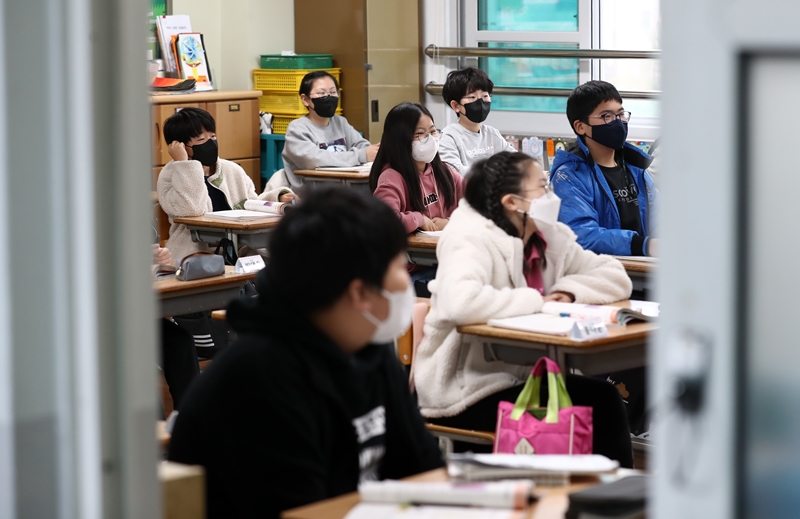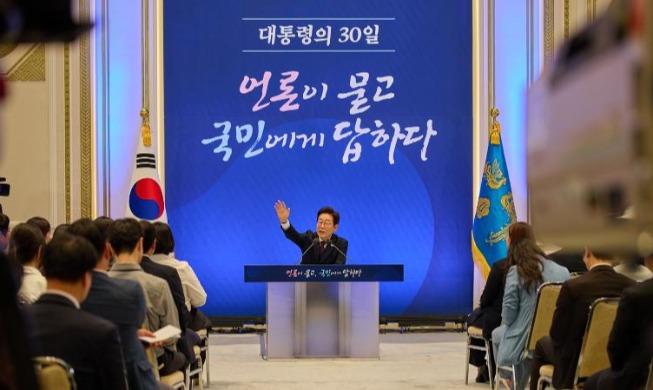
Preschools, elementary, middle and high schools nationwide on Nov. 22 resumed their full-fledged reopening. The photo shows students that morning in a class at DunSan Elementary School in Seo-gu District in Daejeon. (Yonhap News)
By Park Hye Ri and Lee Jihae
Schools nationwide including those in the Greater Seoul area on Nov. 22 fully reopened, with preschools, elementary, middle and high schools resuming on a full scale for the first time since the pandemic broke out a year and eight months ago.
The Ministry of Education last month released its plan for a gradual return to daily life in education, including resumption of the full-fledged reopening of schools on Nov. 22 in light of the scholastic preparatory period and this year's College Scholastic Ability Test, which was held on Nov. 18.
The government's policy toward "living with COVID-19" began on Nov. 1, but the reopening of schools was postponed to Nov. 22 due to the three-week preparatory period for examining factors vulnerable to quarantine and expanding the personnel necessary for responding to the pandemic.
The ministry from Nov. 22 allowed small interactive activities at schools to resume such as picnics, field trips, gatherings and debates for balance in educational activities.
Schools can exercise flexible academic management like holding online and offline courses or partially opening classes according to school density and allowing students to attend school at different times by grade depending on the COVID-19 situation. An immediate shift to online courses is possible after talks with health authorities if an infection is confirmed at a school.
Students who were fully vaccinated when they came in close contact with a confirmed case may attend school after meeting certain criteria, such as testing negative on a polymerase chain reaction test.
Stronger quarantine measures are also scheduled in places considered vulnerable to cluster infections such as dorms, sports facilities and private educational academies. In addition, a limit on the number of people at a school can be placed if emergency measures are implemented due to a mass infection.
From the first semester next year, schools will transition toward complete resumption of daily life based on the results of the switch this semester. Under basic quarantine measures, schools will hold festivals, sports events and field trips as usual.
Standards for stopping in-person attendance and other details will be decided after considering infection status and progress in the phased return to daily life.
At colleges, however, in-person courses have been postponed, though small-scale classes, labs, and practical and skills training will be held in-person by rule. Online courses will be simultaneously offered to students based in regions outside of their college campuses.
The first semester next year at colleges will resume in-person courses on a full scale. The ministry plans to recommend enforcing the "quarantine pass" certifying full vaccination or a negative test result for COVID-19 at campus facilities such as restaurants and libraries.
hrhr@korea.kr
